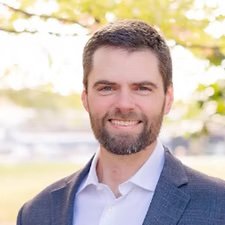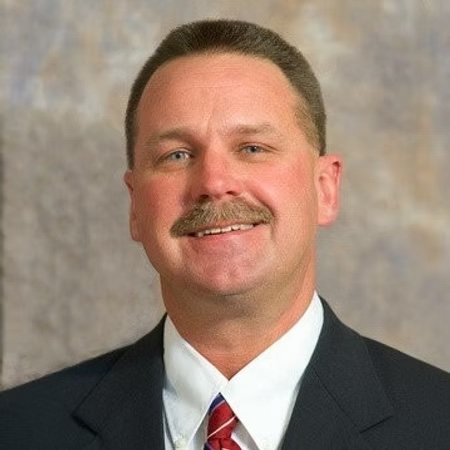Policy Talks 2025
Resource Management, Stewardship, and Innovation in Mississippi
Mississippi, like many other states in our region, has a wealth of resources. Mineral deposits, vast aquifers, and plentiful energy all contribute to sustaining a robust agricultural base and expanding new industries. Stewarding these resources well is critical to meet the growing needs of citizens, communities, and industries and requires careful planning, as well as cutting-edge research. Policy Talks 2025 brings together leaders of all stripes to explore creative and impactful ways to manage our resources—from the experts who study our resources to the industry innovators who make them useful, to the community members who depend on them. We will not only discuss ways current technologies and coming innovations can help to solve problems, but also foster collaborations among researchers, community members, funders, and policymakers to ensure that we are ready for future problems too.
This private and invite-only convening gathers people from across the state of Mississippi, representing a range of community groups, non-profits, agencies, and industries. The day-long event includes presentations, panel discussions, interest group breakouts, and a focused case study to secure funding and enhance innovative green infrastructure through governmental, industry, state, and community partnerships. In addition to the presentations on energy, minerals, and water, the day also showcases a range of innovative technologies from academic researchers, as well as private industries.

Andy Gipson
Commissioner, Mississippi Department of Agriculture and Commerce
-
Andy serves as Mississippi’s eighth Commissioner of Agriculture and Commerce. As a farmer, lawyer, minister and former State Representative, Gipson brings rural sensibilities together with state government experience to work with all Mississippians to promote, market and strengthen agriculture and commerce in the state.
Speakers
Meet this year's invited speakers! Click on a speaker to see their bio.
Dr. J.R. Rigby
Associate Center Director, Hydrologic Transport and Response Branch, US Geological Survey
-
Dr. Rigby leads the Hydrologic Transport and Response Branch overseeing scientific investigations in water quality, aquatic biology, hydrologic alteration, and the hydrology of coastal systems. Prior to joining the USGS, he was a research hydrologist with the USDA Agricultural Research Service at the National Sedimentation Laboratory where he led research on groundwater availability, managed aquifer recharge, watershed hydrology, and sediment transport.
John J. Green
Director, Southern Rural Development Center, Mississippi State University
-
Dr. Green, PhD, is Director of the Southern Rural Development Center (SRDC), an organization focused on building capacity among the 30 Land-Grant institutions located across thirteen states and two territories. Arising from the 1972 Rural Development Act, it operates with support from the US Department of Agriculture’s National Institute of Food and Agriculture. Dr. Green also serves as Professor (Rural Sociology) in the Mississippi State University (MSU) Department of Agricultural Economics. Before joining MSU, he served as Director of the Center for Population Studies and faculty in the Department of Sociology and Anthropology at the University of Mississippi. Dr. Green previously worked at Delta State University.
He received his BA in Political Science and MS in Sociology from MSU, followed by his PhD in Rural Sociology from the University of Missouri-Columbia. Dr. Green’s current areas of researchand Extension-based outreach and education include: regional approaches to socioeconomic development; connections between community development and wellbeing; use of data on population change in conjunction with community engagement strategies to inform public policy and Extension efforts; and models for fostering collaboration across social, institutional, and territorial boundaries.
David Dockery
State Geologist of Mississippi, Mississippi Department of Environmental Quality
-
Dr. Dockery is the 17th State Geologist of Mississippi. He received his Masters in geology from the University of Mississippi and his Ph.D. in paleontology from Tulane University. David has spent over 40 years in leadership positions at the Mississippi Geological Survey, the Mississippi Office of Geology, and Mississippi Department of Environmental Quality. He has published extensively, named nearly 200 species, and received numerous awards and honors over the course of his career.
Kay Jowers
Director, Just Environments, Nicholas Institute for Energy, Environment, and Sustainability, Duke University
James Everett
General Manager of the River Management Group, Tennessee Valley Authority
-
James Everett is based in Knoxville, Tennessee and is the General Manager for TVA’s River Management organization. James oversees diverse teams of specialists, program managers, engineers and technicians that support management TVA’s integrated reservoir system. River Management is responsible for planning and operating the reservoir system to achieve benefits in six key areas; Flood Control, Navigation, Power, Water Supply, Water Quality and Recreation.
TVA’s system of dams span a watershed that is roughly 41,000 square miles, touching seven different states and encompassing 11,000 miles of shoreline. The systems supports, on average, $300M annually in flood reduction benefit to structures and property, $8 Billion regionally through economic output associated with commercial river navigation, while also providing reliable and clean energy through hydroelectric generation via TVA’s 109 conventional hydro generating units. Other key benefits of integrated reservoir system management include providing source drinking water for over 5 million residents and industrial water supply and maintaining water quality systems that increase dissolved oxygen levels in over 300 miles of river below TVA dams.
James has Bachelors and Masters degrees in Civil and Environmental Engineering and is a registered professional engineer. James began his career at TVA in 2008 as a Civil Engineer in the River Forecast Center and has gone on to assume various leadership roles directly tied to managing the Tennessee River and its tributaries. James has lead several stakeholder initiatives including engagements with the U.S. Army Corps of Engineers., the National Weather Service, Hydropower interest groups, research institutions, recreational and environmental interests amongst many others.
Brent Bailey
Vice President of Operations, Efficient Power & Light







